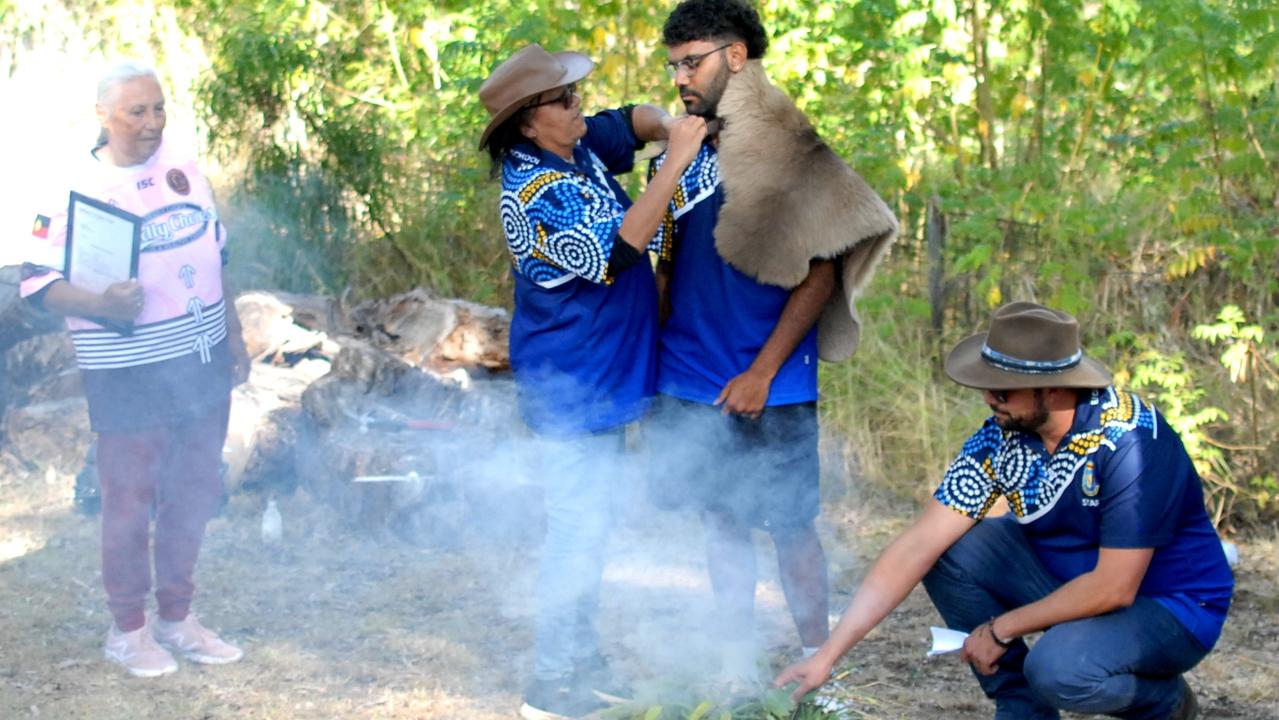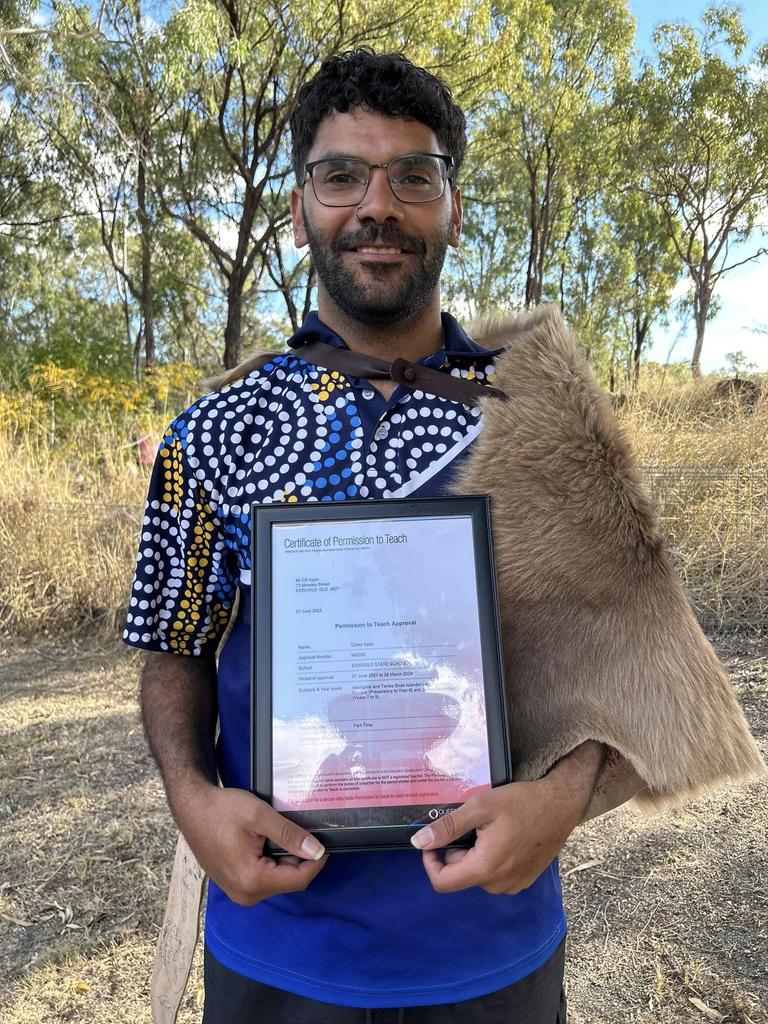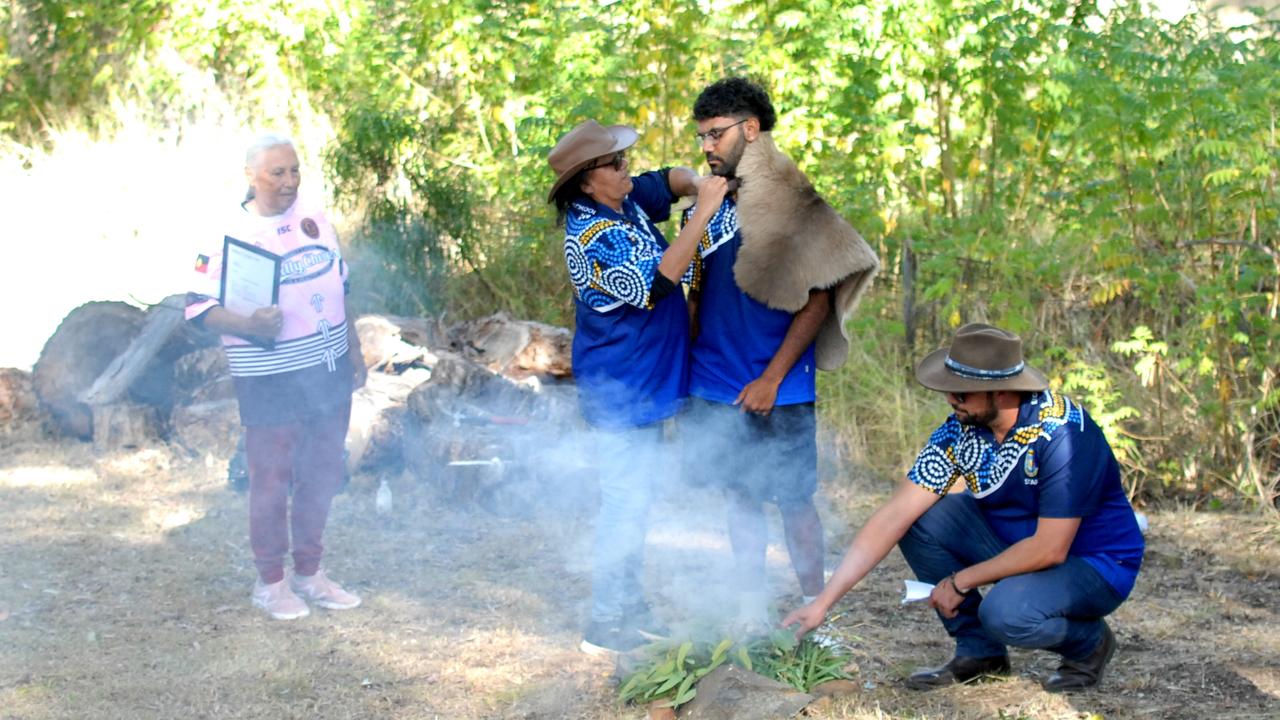Corey Appo to teach Wakka Wakka language in Eidsvold state school
An Eidsvold Wakka Wakka language teacher has secured an official Permission to Teach, the first indigenous language teacher ever to receive such recognition in Queensland.

An Eidsvold First Nations language teacher’s aid has become the first person in the state to receive an official Permission to Teach for his work with the Wakka Wakka language.
Typically, those given a Permission to Teach are expected to be enrolled in a university, working towards a teaching or similar degree.
“He (Mr Appo) was first put forward by one of the elders in the community, and he originally thought he was just going to be a volunteer before he became a teacher’s aid,” Eidsvold State School principal Preston Parter said.
Mr Appo has been working with the Eidsvold State School and Mr Parter to bring the Wakka Wakka language to the school’s students for the past five years.
Mr Parter became a driving force behind the indigenous language program the school took on, working with elders and language advisory groups to shape the curriculum.
So vital was the work Mr Appo was doing, Mr Parter decided it was high time he received recognition for the benefits he provided to students.

Image credit: Noel Thompson.
“My argument when working with the department is that Corey has a really unique skill set and the educational system should recognise that,” Mr Parter said.
After a three year journey working with the Department of Education and the Queensland College of Teachers, Mr Appo received the recognition on Friday, June, 9, 2023.
The permission will allow him to continue to work with the school, and expand the curriculum he and Mr Parter have developed over the past five years.
Mr Parter said he had been blown away by the positive response to the language program, which has brought 50 students to the school since it began.
“We thought non-indigenous students and their families might not buy into the program, but we found out they love it,” he said.
“It’s really improved our behaviour across the school because we have this new sense of belonging and the students feel connected to country.”
More Coverage





